-

Jan
22
Interpretive Summary: Metabolic and hormonal effects of whole grains of rye, oats and wheat in dog food
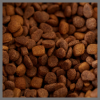
The health promoting effects of including whole grains in the diet of humans are well known. However, the capacity to lower blood glucose and lipids seems to differ between different whole grains, with oats and rye showing beneficial effects more frequently than wheat.
Read more
-

Jan
22
Interpretive Summary: Gait, skin and coat, and plasma cytokine changes in response to exercise and trace mineral source

This study evaluated whether the source of dietary trace minerals (zinc, manganese, copper, iron, and selenium) could affect healthy adult dogs’ mobility, inflammation, and overall health during an exercise regimen. In this experiment, 40 Labrador Retrievers were fed either a diet including traditionally sourced inorganic minerals (ING) or an amino acid complexed organic source (TMC) for 9 wk, during which dogs underwent increasingly strenuous running challenges.
Read more
-

Jan
22
Interpretive Summary: Caretakers at the core: exploring worker perceptions of job satisfaction, training, cattlecare, and workplace community on feedyards in the United States

The well-being of workers in the beef production system is a key component of its social sustainability. Feedlot workers, who are responsible for the care and management of cattle, play a crucial role in animal welfare, but their perspectives have gone largely understudied.
Read more
-

Jan
22
Interpretive Summary: Daily feed intake patterns of purebred nucleus boars as genetic indicators for disease resilience of crossbred barrows under a natural polymicrobial disease challenge
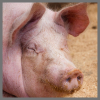
We evaluated the use daily feed intake data that is routinely collected on purebred male selection candidates in high-health nucleus herds to derive indicator traits to select them in order to improve disease resilience of their crossbred progeny in commercial environments. For the latter, we used data from a large-scale natural disease challenge of crossbred Landrace x Yorkshire barrows.
Read more
-

Jan
22
Interpretive Summary: Genetic architecture of swine inflammation and necrosis syndrome and its genetic correlation with repeated skin damage scores
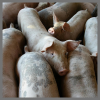
Swine inflammation and necrosis syndrome (SINS) is a newly identified condition characterized by inflammatory and necrotic signs in various body parts of suckling piglets, weaners, and fatteners. Although evidence indicates a primarily endogenous cause in newborns, the genetic basis and mechanisms underlying the development of SINS are largely unknown.
Read more
-

Jan
22
Interpretive Summary: Forage intake and digesta kinetics of lactating beef cattle differing in feed efficiency while grazing Idaho rangelands
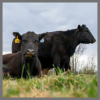
Efficiency is output divided by input. When discussing beef cattle efficiency, this is usually measured with feed intake within a controlled environment such as a feedlot. However, mature cattle that make up the US cow herd live primarily outside of confinement in open pasture and range systems.
Read more
-

Jan
20
The Giving Herd - ASAS Foundation Newsletter - January 2026

The January Edition of The Giving Herd, an ASAS Foundation Newsletter
Read more
-

Jan
15
Interpretive Summary: Technologies and opportunities to improve sustainability of swine production systems
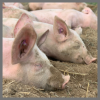
Over the past two decades, the world has had increasing discussions on environmental sustainability. Agriculture provides basic needs of humans. As the world faces current and newly evolving challenges, we are reminded that agriculture must do its part in conserving nutrients to feed a growing population with a shrinking agricultural land mass.
Read more
-

Jan
15
Interpretive Summary: Dietary supplementation with organic choline improves layer performance, egg production, and egg quality

Choline is a key nutrient that supports the liver and overall health of egg-laying hens, while also helping them produce eggs efficiently. Traditionally, poultry diets include use of synthetic choline chloride. In this study, we tested a novel, organic form of choline called choline propionate to assess if it could work similar or better than choline chloride.
Read more
-

Jan
15
Interpretive Summary: A comparative analysis of machine learning classifiers for modeling the number of liveborn piglets
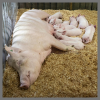
In commercial swine farming, the ability to predict the productivity of sows is extremely valuable as it provides herd management guidance, improving the farm cost efficiency. However, sow productivity is a multifaceted phenotype that involves complex patterns between various measurable sow attributes.
Read more
-

Jan
15
Interpretive Summary: Effects of feeding a Bacillus-based probiotic on nutrient utilization and microbiota profile in the rumen and reproductive tract of beef heifers receiving a forage-based diet
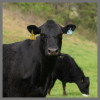
To meet the growing demand for beef driven by a rising population, cattle operations must improve efficiency of nutrient utilization by the rumen and the entire digestive tract. This can be achieved by enhancing forage quality or implementing nutritional strategies that optimize forage and overall nutrient digestibility, such as supplementing cattle with Bacillus-based probiotics.
Read more
-

Jan
15
Interpretive Summary: Replacement of added trace minerals (zinc, copper, iron, and manganese) by a consensus bacterial 6-phytase variant in weaned pigs fed an all-vegetable diet
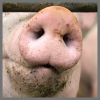
Trace minerals are added to commercial pig diets because their availability in conventional plant-based feed ingredients is typically low. Levels supplemented are sometimes far in excess of NRC recommendations. Reducing supplementation may improve environmental sustainability by reducing trace mineral waste.
Read more
-

Jan
15
Interpretive Summary: Reducing the weaning impact in piglets with dietary fiber: the role of milled almond shells compared to wheat bran
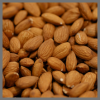
Weaning is a stressful period for piglets, often leading to digestive problems that can slow down growth and weaken health. Adding fiber to their diet is one strategy to reduce these issues. In our study, we evaluated whether almond shells (AS), a by-product of almond farming, could serve as an alternative insoluble fiber source for piglets.
Read more
-

Jan
08
Interpretive Summary: Animal science for all

Animal agriculture has long been recognized as both widely accessible and adaptable to the diverse circumstances found around the world. It has served as a source of economic and cultural stability, while also offering opportunities for continued advancement. However, the relationship between people and animal agriculture is complex.
Read more
-

Jan
08
Interpretive Summary: Gender dynamics in Animal Science: progress, pitfalls, and pathways forward

Gender equality is one of the 17 core objectives of the Sustainable Development Goals (SDGs) outlined in the 2030 Agenda for Sustainable Development, adopted in 2015 by all 193 United Nations member states. As stated in SDG 5—Achieve gender equality and empower all women and girls—“Gender equality is not only a fundamental human right but a necessary foundation for a peaceful, prosperous and sustainable world.”
Read more
-

Jan
08
Interpretive Summary: Latina lived experience as agricultural students at a Land-Grant university

From food commercials to the United States Department of Agriculture, there are calls for more educated agriculturalists. Meanwhile, the Food and Agricultural Education Information System published data showing that in 2022, 12.1% of the total agricultural undergraduate student enrollment was Hispanic/ Latiné (Food and Agriculutral Education System, 2025).
Read more
-

Jan
08
Interpretive Summary: Addressing challenges and leveraging opportunities for capacity building and the sustainable development of animal production in the south

Animal production in the south, particularly Africa, faces several challenges that limit productivity, sustainability, and economic contribution to local and national economies. Challenges include harsh environmental conditions, climate change, limited feed resources, diseases, antimicrobial resistance, and poor animal well-being and welfare. Addressing these challenges requires concerted effort from researchers, policymakers, industry stakeholders, and farmers.
Read more
-

Jan
08
Interpretive Summary: Meeting the moment: using scientific conferences and journals to promote equity and inclusion in animal science

Animal science organizations have been working to promote diversity, equity, and inclusion (DEI) for over two decades. These efforts began with a strong focus on recruiting and retaining women in the field. In the early 2000s, women made up less than 10% of professional-level animal scientists in academia, with the exception of equine science, where female involvement has a long tradition. Today, women represent more than 50% of professional animal scientists and an impressive 80% of equine scientists.
Read more
-

Dec
18
Washington Roundup – December 2025

On December 10th, the Secretaries of Agriculture and Health and Human Services jointly announced a $700 million Regenerative Pilot Program to help American farmers adopt practices that improve soil health, enhance water quality, and boost long-term productivity, while strengthening America’s food and fiber supply.
Read more
-

Dec
16
The Giving Herd - ASAS Foundation Newsletter - December 2025

The December Edition of The Giving Herd, an ASAS Foundation Newsletter
Read more
 JanInterpretive Summary: Metabolic and hormonal effects of whole grains of rye, oats and wheat in dog food
JanInterpretive Summary: Metabolic and hormonal effects of whole grains of rye, oats and wheat in dog food The health promoting effects of including whole grains in the diet of humans are well known. However, the capacity to lower blood glucose and lipids seems to differ between different whole grains, with oats and rye showing beneficial effects more frequently than wheat.
The health promoting effects of including whole grains in the diet of humans are well known. However, the capacity to lower blood glucose and lipids seems to differ between different whole grains, with oats and rye showing beneficial effects more frequently than wheat. JanInterpretive Summary: Gait, skin and coat, and plasma cytokine changes in response to exercise and trace mineral source
JanInterpretive Summary: Gait, skin and coat, and plasma cytokine changes in response to exercise and trace mineral source This study evaluated whether the source of dietary trace minerals (zinc, manganese, copper, iron, and selenium) could affect healthy adult dogs’ mobility, inflammation, and overall health during an exercise regimen. In this experiment, 40 Labrador Retrievers were fed either a diet including traditionally sourced inorganic minerals (ING) or an amino acid complexed organic source (TMC) for 9 wk, during which dogs underwent increasingly strenuous running challenges.
This study evaluated whether the source of dietary trace minerals (zinc, manganese, copper, iron, and selenium) could affect healthy adult dogs’ mobility, inflammation, and overall health during an exercise regimen. In this experiment, 40 Labrador Retrievers were fed either a diet including traditionally sourced inorganic minerals (ING) or an amino acid complexed organic source (TMC) for 9 wk, during which dogs underwent increasingly strenuous running challenges. JanInterpretive Summary: Caretakers at the core: exploring worker perceptions of job satisfaction, training, cattlecare, and workplace community on feedyards in the United States
JanInterpretive Summary: Caretakers at the core: exploring worker perceptions of job satisfaction, training, cattlecare, and workplace community on feedyards in the United States The well-being of workers in the beef production system is a key component of its social sustainability. Feedlot workers, who are responsible for the care and management of cattle, play a crucial role in animal welfare, but their perspectives have gone largely understudied.
The well-being of workers in the beef production system is a key component of its social sustainability. Feedlot workers, who are responsible for the care and management of cattle, play a crucial role in animal welfare, but their perspectives have gone largely understudied. JanInterpretive Summary: Daily feed intake patterns of purebred nucleus boars as genetic indicators for disease resilience of crossbred barrows under a natural polymicrobial disease challenge
JanInterpretive Summary: Daily feed intake patterns of purebred nucleus boars as genetic indicators for disease resilience of crossbred barrows under a natural polymicrobial disease challenge We evaluated the use daily feed intake data that is routinely collected on purebred male selection candidates in high-health nucleus herds to derive indicator traits to select them in order to improve disease resilience of their crossbred progeny in commercial environments. For the latter, we used data from a large-scale natural disease challenge of crossbred Landrace x Yorkshire barrows.
We evaluated the use daily feed intake data that is routinely collected on purebred male selection candidates in high-health nucleus herds to derive indicator traits to select them in order to improve disease resilience of their crossbred progeny in commercial environments. For the latter, we used data from a large-scale natural disease challenge of crossbred Landrace x Yorkshire barrows. JanInterpretive Summary: Genetic architecture of swine inflammation and necrosis syndrome and its genetic correlation with repeated skin damage scores
JanInterpretive Summary: Genetic architecture of swine inflammation and necrosis syndrome and its genetic correlation with repeated skin damage scores Swine inflammation and necrosis syndrome (SINS) is a newly identified condition characterized by inflammatory and necrotic signs in various body parts of suckling piglets, weaners, and fatteners. Although evidence indicates a primarily endogenous cause in newborns, the genetic basis and mechanisms underlying the development of SINS are largely unknown.
Swine inflammation and necrosis syndrome (SINS) is a newly identified condition characterized by inflammatory and necrotic signs in various body parts of suckling piglets, weaners, and fatteners. Although evidence indicates a primarily endogenous cause in newborns, the genetic basis and mechanisms underlying the development of SINS are largely unknown. JanInterpretive Summary: Forage intake and digesta kinetics of lactating beef cattle differing in feed efficiency while grazing Idaho rangelands
JanInterpretive Summary: Forage intake and digesta kinetics of lactating beef cattle differing in feed efficiency while grazing Idaho rangelands Efficiency is output divided by input. When discussing beef cattle efficiency, this is usually measured with feed intake within a controlled environment such as a feedlot. However, mature cattle that make up the US cow herd live primarily outside of confinement in open pasture and range systems.
Efficiency is output divided by input. When discussing beef cattle efficiency, this is usually measured with feed intake within a controlled environment such as a feedlot. However, mature cattle that make up the US cow herd live primarily outside of confinement in open pasture and range systems. JanThe Giving Herd - ASAS Foundation Newsletter - January 2026
JanThe Giving Herd - ASAS Foundation Newsletter - January 2026 The January Edition of The Giving Herd, an ASAS Foundation Newsletter
The January Edition of The Giving Herd, an ASAS Foundation Newsletter JanInterpretive Summary: Technologies and opportunities to improve sustainability of swine production systems
JanInterpretive Summary: Technologies and opportunities to improve sustainability of swine production systems Over the past two decades, the world has had increasing discussions on environmental sustainability. Agriculture provides basic needs of humans. As the world faces current and newly evolving challenges, we are reminded that agriculture must do its part in conserving nutrients to feed a growing population with a shrinking agricultural land mass.
Over the past two decades, the world has had increasing discussions on environmental sustainability. Agriculture provides basic needs of humans. As the world faces current and newly evolving challenges, we are reminded that agriculture must do its part in conserving nutrients to feed a growing population with a shrinking agricultural land mass. JanInterpretive Summary: Dietary supplementation with organic choline improves layer performance, egg production, and egg quality
JanInterpretive Summary: Dietary supplementation with organic choline improves layer performance, egg production, and egg quality Choline is a key nutrient that supports the liver and overall health of egg-laying hens, while also helping them produce eggs efficiently. Traditionally, poultry diets include use of synthetic choline chloride. In this study, we tested a novel, organic form of choline called choline propionate to assess if it could work similar or better than choline chloride.
Choline is a key nutrient that supports the liver and overall health of egg-laying hens, while also helping them produce eggs efficiently. Traditionally, poultry diets include use of synthetic choline chloride. In this study, we tested a novel, organic form of choline called choline propionate to assess if it could work similar or better than choline chloride. JanInterpretive Summary: A comparative analysis of machine learning classifiers for modeling the number of liveborn piglets
JanInterpretive Summary: A comparative analysis of machine learning classifiers for modeling the number of liveborn piglets In commercial swine farming, the ability to predict the productivity of sows is extremely valuable as it provides herd management guidance, improving the farm cost efficiency. However, sow productivity is a multifaceted phenotype that involves complex patterns between various measurable sow attributes.
In commercial swine farming, the ability to predict the productivity of sows is extremely valuable as it provides herd management guidance, improving the farm cost efficiency. However, sow productivity is a multifaceted phenotype that involves complex patterns between various measurable sow attributes. JanInterpretive Summary: Effects of feeding a Bacillus-based probiotic on nutrient utilization and microbiota profile in the rumen and reproductive tract of beef heifers receiving a forage-based diet
JanInterpretive Summary: Effects of feeding a Bacillus-based probiotic on nutrient utilization and microbiota profile in the rumen and reproductive tract of beef heifers receiving a forage-based diet To meet the growing demand for beef driven by a rising population, cattle operations must improve efficiency of nutrient utilization by the rumen and the entire digestive tract. This can be achieved by enhancing forage quality or implementing nutritional strategies that optimize forage and overall nutrient digestibility, such as supplementing cattle with Bacillus-based probiotics.
To meet the growing demand for beef driven by a rising population, cattle operations must improve efficiency of nutrient utilization by the rumen and the entire digestive tract. This can be achieved by enhancing forage quality or implementing nutritional strategies that optimize forage and overall nutrient digestibility, such as supplementing cattle with Bacillus-based probiotics. JanInterpretive Summary: Replacement of added trace minerals (zinc, copper, iron, and manganese) by a consensus bacterial 6-phytase variant in weaned pigs fed an all-vegetable diet
JanInterpretive Summary: Replacement of added trace minerals (zinc, copper, iron, and manganese) by a consensus bacterial 6-phytase variant in weaned pigs fed an all-vegetable diet Trace minerals are added to commercial pig diets because their availability in conventional plant-based feed ingredients is typically low. Levels supplemented are sometimes far in excess of NRC recommendations. Reducing supplementation may improve environmental sustainability by reducing trace mineral waste.
Trace minerals are added to commercial pig diets because their availability in conventional plant-based feed ingredients is typically low. Levels supplemented are sometimes far in excess of NRC recommendations. Reducing supplementation may improve environmental sustainability by reducing trace mineral waste. JanInterpretive Summary: Reducing the weaning impact in piglets with dietary fiber: the role of milled almond shells compared to wheat bran
JanInterpretive Summary: Reducing the weaning impact in piglets with dietary fiber: the role of milled almond shells compared to wheat bran Weaning is a stressful period for piglets, often leading to digestive problems that can slow down growth and weaken health. Adding fiber to their diet is one strategy to reduce these issues. In our study, we evaluated whether almond shells (AS), a by-product of almond farming, could serve as an alternative insoluble fiber source for piglets.
Weaning is a stressful period for piglets, often leading to digestive problems that can slow down growth and weaken health. Adding fiber to their diet is one strategy to reduce these issues. In our study, we evaluated whether almond shells (AS), a by-product of almond farming, could serve as an alternative insoluble fiber source for piglets. JanInterpretive Summary: Animal science for all
JanInterpretive Summary: Animal science for all Animal agriculture has long been recognized as both widely accessible and adaptable to the diverse circumstances found around the world. It has served as a source of economic and cultural stability, while also offering opportunities for continued advancement. However, the relationship between people and animal agriculture is complex.
Animal agriculture has long been recognized as both widely accessible and adaptable to the diverse circumstances found around the world. It has served as a source of economic and cultural stability, while also offering opportunities for continued advancement. However, the relationship between people and animal agriculture is complex. JanInterpretive Summary: Gender dynamics in Animal Science: progress, pitfalls, and pathways forward
JanInterpretive Summary: Gender dynamics in Animal Science: progress, pitfalls, and pathways forward Gender equality is one of the 17 core objectives of the Sustainable Development Goals (SDGs) outlined in the 2030 Agenda for Sustainable Development, adopted in 2015 by all 193 United Nations member states. As stated in SDG 5—Achieve gender equality and empower all women and girls—“Gender equality is not only a fundamental human right but a necessary foundation for a peaceful, prosperous and sustainable world.”
Gender equality is one of the 17 core objectives of the Sustainable Development Goals (SDGs) outlined in the 2030 Agenda for Sustainable Development, adopted in 2015 by all 193 United Nations member states. As stated in SDG 5—Achieve gender equality and empower all women and girls—“Gender equality is not only a fundamental human right but a necessary foundation for a peaceful, prosperous and sustainable world.” JanInterpretive Summary: Latina lived experience as agricultural students at a Land-Grant university
JanInterpretive Summary: Latina lived experience as agricultural students at a Land-Grant university From food commercials to the United States Department of Agriculture, there are calls for more educated agriculturalists. Meanwhile, the Food and Agricultural Education Information System published data showing that in 2022, 12.1% of the total agricultural undergraduate student enrollment was Hispanic/ Latiné (Food and Agriculutral Education System, 2025).
From food commercials to the United States Department of Agriculture, there are calls for more educated agriculturalists. Meanwhile, the Food and Agricultural Education Information System published data showing that in 2022, 12.1% of the total agricultural undergraduate student enrollment was Hispanic/ Latiné (Food and Agriculutral Education System, 2025). JanInterpretive Summary: Addressing challenges and leveraging opportunities for capacity building and the sustainable development of animal production in the south
JanInterpretive Summary: Addressing challenges and leveraging opportunities for capacity building and the sustainable development of animal production in the south Animal production in the south, particularly Africa, faces several challenges that limit productivity, sustainability, and economic contribution to local and national economies. Challenges include harsh environmental conditions, climate change, limited feed resources, diseases, antimicrobial resistance, and poor animal well-being and welfare. Addressing these challenges requires concerted effort from researchers, policymakers, industry stakeholders, and farmers.
Animal production in the south, particularly Africa, faces several challenges that limit productivity, sustainability, and economic contribution to local and national economies. Challenges include harsh environmental conditions, climate change, limited feed resources, diseases, antimicrobial resistance, and poor animal well-being and welfare. Addressing these challenges requires concerted effort from researchers, policymakers, industry stakeholders, and farmers. JanInterpretive Summary: Meeting the moment: using scientific conferences and journals to promote equity and inclusion in animal science
JanInterpretive Summary: Meeting the moment: using scientific conferences and journals to promote equity and inclusion in animal science Animal science organizations have been working to promote diversity, equity, and inclusion (DEI) for over two decades. These efforts began with a strong focus on recruiting and retaining women in the field. In the early 2000s, women made up less than 10% of professional-level animal scientists in academia, with the exception of equine science, where female involvement has a long tradition. Today, women represent more than 50% of professional animal scientists and an impressive 80% of equine scientists.
Animal science organizations have been working to promote diversity, equity, and inclusion (DEI) for over two decades. These efforts began with a strong focus on recruiting and retaining women in the field. In the early 2000s, women made up less than 10% of professional-level animal scientists in academia, with the exception of equine science, where female involvement has a long tradition. Today, women represent more than 50% of professional animal scientists and an impressive 80% of equine scientists. DecWashington Roundup – December 2025
DecWashington Roundup – December 2025 On December 10th, the Secretaries of Agriculture and Health and Human Services jointly announced a $700 million Regenerative Pilot Program to help American farmers adopt practices that improve soil health, enhance water quality, and boost long-term productivity, while strengthening America’s food and fiber supply.
On December 10th, the Secretaries of Agriculture and Health and Human Services jointly announced a $700 million Regenerative Pilot Program to help American farmers adopt practices that improve soil health, enhance water quality, and boost long-term productivity, while strengthening America’s food and fiber supply. DecThe Giving Herd - ASAS Foundation Newsletter - December 2025
DecThe Giving Herd - ASAS Foundation Newsletter - December 2025 The December Edition of The Giving Herd, an ASAS Foundation Newsletter
The December Edition of The Giving Herd, an ASAS Foundation Newsletter



